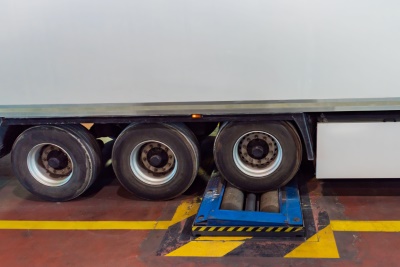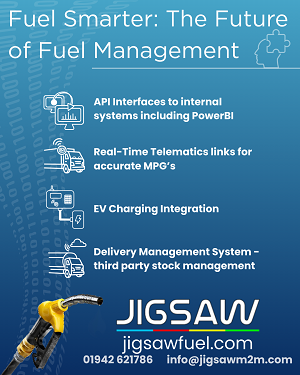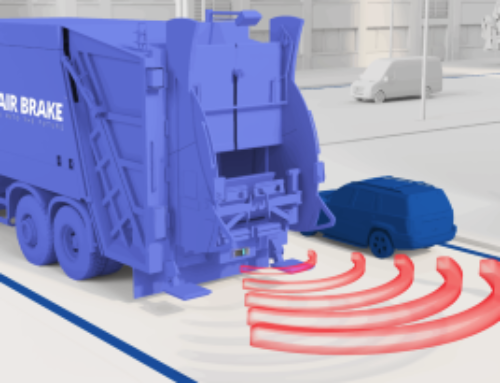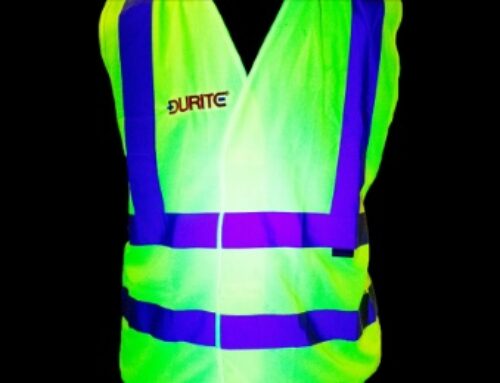Braking compliance in the spotlight with BPW
 Vehicle technology provider BPW has offered its perspective on how operators can comply with the Driver & Vehicle Standards Agency’s (DVSA) expectation that brake performance assessments should be included at every HGV safety inspection.
Vehicle technology provider BPW has offered its perspective on how operators can comply with the Driver & Vehicle Standards Agency’s (DVSA) expectation that brake performance assessments should be included at every HGV safety inspection.
In the most recent version of the DVSA Guide to Maintaining Roadworthiness, laden roller brake testers (RBTs) and electronic brake performance monitoring systems (EBPMS) are identified as among the acceptable methods of assessing braking performance.
“Each method has its advantages, and what works for one company may not work for another, therefore, key factors like fleet size and additional costs must be taken into consideration,” said BPW.
The company highlights how regulations in recent times have emphasised the need for trailers to undergo brake testing at least four times a year, with one test required during the annual MOT.
There is also now an expectation that tests are conducted with the trailer laden, albeit with some exceptions; the current version of the Guide details acceptable reasons for not carrying out brake tests laden, and risk assessments that need to be carried out when not conducting a laden test, complete with examples.
“It is important that all fleet operators understand the new requirements and the expectations involved. With its braking expertise and commitment to compliance, BPW is here to help operators navigate these changes and choose the right brake performance assessment method for their business.”
For some fleet operators, says BPW, a laden RBT will remain the preferred choice, offering a direct, physical assessment of braking performance.
“But for those looking for a more informed data-driven insight, EBPMS is the smarter alternative,” said the company.
“This decision is not just a matter of compliance: it is a strategic decision that could influence a fleet’s overall efficiency, safety, and profit.”
 As the traditional approach to brake testing, the RBT has long been the industry standard for brake performance testing, says BPW.
As the traditional approach to brake testing, the RBT has long been the industry standard for brake performance testing, says BPW.
“During this procedure, the service brake is applied to the maximum, where the braking force for each wheel station is recorded,” the company continued.
“While RBT remains a trusted compliance method, for some, meeting the new requirements now poses a logistical challenge. Not all operators have access to a test centre or the necessary loading equipment.
“As a result, operators have been forced to hire additional staff dedicated to loading and unloading trailers, significantly increasing operational costs. With more brake tests required, downtime and overheads continue to rise.”
The company says EBPMS can offer a smarter, data-driven solution.
“For fleet operators looking to take compliance to the next level, BPW idem Telematics EBPMS demonstrates compliance with the current DVSA requirements as set out in the Guide to Maintaining Roadworthiness,” it said.
“Unlike an RBT, which requires a planned visit to a test centre, EBPMS continuously monitors braking performance in real-time while the vehicle is in service.
“EBPMS gathers data collected from the Electronic Braking System (EBS), combined with its telematics system, to generate real-time data reports. The longer the system is used, the more accurate the data becomes.
“By continuously monitoring brake performance, operators can identify potential issues well before the next maintenance interval. Providing there is sufficient data, EBPMS can be programmed to generate reports in line with a fleet maintenance schedule.”
It is important to remember that EBPMS cannot entirely replace an RBT, adds BPW.
“They are two different methods of measuring brake performance; therefore, an RBT must be performed during the annual MOT.”
Additionally, EBPMS cannot assess parking brake performance, BPW adds. Full details of how parking brake performance may be assessed when EBPMS is fitted on a trailer can be found in the DVSA Guide to Maintaining Roadworthiness.
“Although the April 2025 compliance deadline has passed, fleet operators still have time to determine the best compliance strategy for their fleet,” said BPW.
“One question remains: will you continue to use traditional laden RBT with its logistical demands, or will you transition to the smarter, data-driven alternative BPW idem Telematics EBPMS, designed to reduce downtime and improve efficiency?”
The company highlights its 125-plus years of braking experience.
“When it comes to monitoring your brakes, it makes sense to trust BPW idem Telematics,” it said.
“BPW provide expert guidance and is committed to supporting the transport industry as it moves from a traditional to a smarter way of working.”













